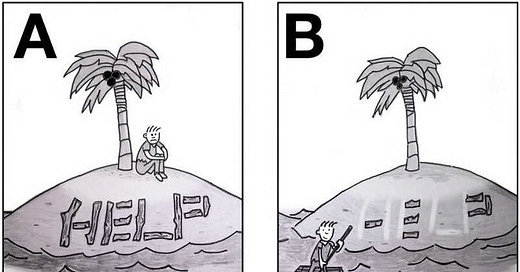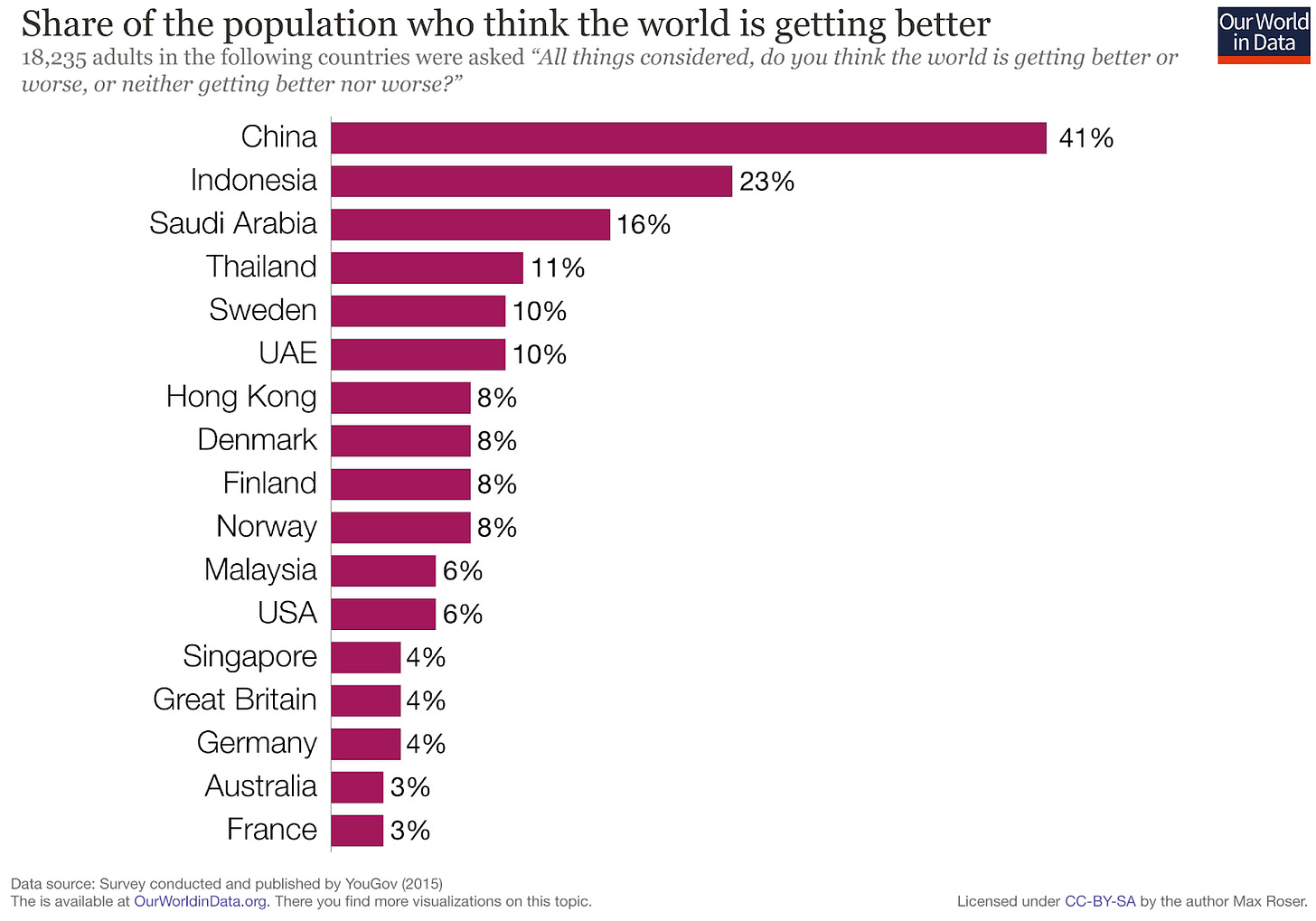This year, I moved to Europe. For the last five years, I spent a considerable amount of time in the US, surrounded by the most ambitious builders and investors working to create transformative climate companies.
Perhaps because of this, I now fully subscribe to the view that technology is our most powerful force for progress. It can propel humanity toward a world of abundance—abundant energy, materials, food, intelligence, and movement.
While I acknowledge this perspective sits at the edge in the US—most Americans are not technology maximalists—it was still a shock to relocate to Europe and struggle to find people who see technology as an unstoppable force for progress.
After a few months here, I sent an email to close friends:
“Who are the best technology-maximalist thinkers in Europe? Think Packy McCormick, if he were European.”
The replies were telling:
“Yeah. Europe isn’t famous for its optimism 😂.”
“The reality is there aren’t a tonne of people to pick from.”
“We are not used to shouting it from the rooftops.”
“Phew, tough to come up with a name right away. I guess that spot is up for grabs for someone like you.”
I recognise my naivety, but the following is my outsider’s perspective on one thing that can change in Europe.
Stories as self-fulfilling prophecies
Collective narratives matter. Compelling stories become self-fulfilling prophecies. This is particularly true in technology adoption. A new technology might be physically possible, but often it requires a shared narrative to diffuse and take root.
The most famous example? Moore’s Law. Initially, it was an observation. But after Gordon Moore articulated it, the saga of the microchip became a technology propelled by narrative. Moore’s Law turned into a goal that inspired generations of engineers, accelerating innovation and proving itself right.
Doomerism in Europe is rife
Today the mainstream story of Europe is declining competitiveness on the world stage. China is the world’s manufacturing hub. The US is the world's innovation centre. Europe? Europe is world-class at tourism.
There is also the global narrative that Europeans lack agency. As Peter Thiel in Zero to One: “Europeans just react to events as they happen and hope things don’t get worse”.
In technology circles, doomerism dominates. Comparisons abound: the decacorns in the US versus Europe, the value loss of European founders listing companies in the US or even convoluted arguments favoring quality of life over economic progress. It’s a scarcity mindset.
But It’s Not That Different
Here’s what is interesting: the US faces many of the same challenges as Europe—declining productivity, a hollowed-out industrial base, increasing polarisation.
And the average American is not more optimistic, Our World In Data analysis Americans and Europeans are equally pessimistic about the future:
So what is different?
Optimism infrastructure
To change the world, the average person’s attitude doesn’t matter much—at least not initially. Progress is driven by optimists: the people on the furthest edge of the normal distribution who see a vision, take responsibility, and will it into existence.
Europe is not short of high-agency builders, here’s a list of those I deeply admire.
What is missing is what I’m going to call “optimism infrastructure”: the enabling system that supports these builders and amplifies their stories.
In the US, platforms like notboring.co, a16z’s media arm or Mike Solana’s (Founders Fund CMO) Pirate Wires are great at dispersing the stories of builders and their abundance mindsets. Their narratives spread optimism, attract talent, and propel progress. They start at the edge, in technology circles, and gradually influence the mainstream culture. Would the Gundo Bro’s Time to Build movement be so influential without these platforms?
In Europe, this infrastructure is not yet fully formed. The stories of ambitious builders don’t diffuse into broader culture in the same way. The exciting thing is that this is starting to change. Initiatives like EU Inc, eu/acc and a growing cohort of technology leaders amplifying the message: Europe builds (here, here and here).
But more needs to be done. The good news? It’s entirely possible. Europe doesn’t need a cultural overhaul—it just needs better systems to support and amplify its optimists. History has repeatedly shown that small groups of determined people, bound by a shared sense of mission, can change the world.
This is just one part of what’s needed to transform Europe’s trajectory. Regulation, growth capital, and retaining talent are equally crucial. But amplifying the stories of Europe’s builders is a vital piece of the puzzle.
I believe in Europe’s builders and will work to amplify their stories. I’m building something to do this and look forward to sharing more soon.





In my view, the difference here is that every country in Europe has a long history of nurtured animosity, cultural barriers, and current politics that are extremely different. That is why it's so hard to build shared optimism, because day to day looks quite different for many of us. We do need more stories of how we came together to build something greater, rather than fearing what could go wrong, but this way of thinking goes way back (all the way to the Roman Empire).
This! Fantastic post Sam. We need to curate and champion the stories of Europe's builders. Where do I sign-up?! More of this, please!